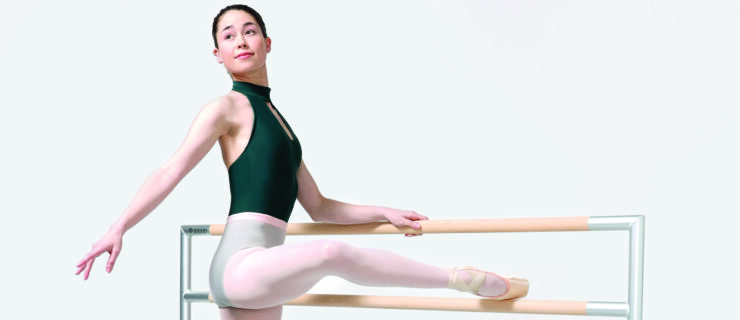How to Prepare for a Career as a Ballroom Teacher
With the current swing and salsa crazes and the onslaught of media attention on ballroom dance, enrollment in social dance studios is growing, creating a demand for instructors. If you’re a dancer looking to score health insurance or supplemental income, teaching may be a fulfilling and practical option. Here’s what you need to know.
Franchised Dance Studio
Franchised dance studios like Arthur Murray and Fred Astaire are individually owned schools that are also members of a larger organization, and operate similarly to chain restaurants or clothing stores. Each studio has its own culture within the organization, but must adhere to business practices and syllabus standards, and pursue prescribed competition venues, as dictated by the organization.
If you decide to work for a franchised studio, you may be given several months of free training, which provides basic dance and teaching skills. You may need to find an alternative form of income to help pay your bills during this time, since you won’t begin earning money until training is complete and you have your own students. Studios will help new teachers develop a student base.
Although many franchised studios employ a staff person to concentrate on marketing, outreach and sales, it’s ultimately up to each teacher to keep students challenged and satisfied enough to continue with lessons. Some studios pay teachers based on the number of lessons taught, while others offer salaries. Additional perks include regular paychecks and access to health and life insurance.
Karena Shackel, a six-year veteran instructor with the Arthur Murray studio in Edina, MN, says that by working at a franchise, she doesn’t have to worry about accounting, marketing, advertising, studio maintenance and other business operations. She also likes that “with Arthur Murray, there is a recognizable name and a community larger than myself,” she explains. Through the organization, Shackel has easy access to dance workshops, seminars, coaches, judges and Arthur Murray–sponsored competitions.
Rebecca Trost, owner of Four Seasons Dance Studio, an independent studio in Minneapolis, began her teaching career with the Fred Astaire franchise. Though she says it was a great way to start out, she notes that teachers must be prepared for dress codes, required scripts for how to greet students and pressure to meet sales and quota goals.
Most franchised studios require contracts with a non-compete clause, meaning an instructor cannot teach dance outside the franchise for a certain period of time after terminating employment with the studio (usually two years). This clause protects the franchise from having teachers leave with its students. For teachers who intend to stay with the company and work their way up from instructor to manager, coach, judge or owner, the contract clause may never come into play. Before signing any contract, however, discuss all possible outcomes of your employment with your employer, then document the conversation in a letter signed by you both.
Teaching Independently
Teaching independently is a way to sidestep non-compete clauses and dress codes and set your own prices. The most commonly cited benefits to stepping out on your own is having the freedom to build a studio that reflects your artistic vision and preferred business model, along with taking a larger percentage of the profits. The trade-off is that you’ll have the sole responsibility of securing and renting studio space, providing music and equipment, developing a curriculum, paying for your health insurance, building a student base and doing marketing and advertising.
Cindy Gardner, an independent teacher in Minneapolis, decided to make her school affordable by offering group classes, which allows her to charge lower fees per session to a larger number of students. She built her client base predominantly through word of mouth and community education networks. As a result, her experience with the competition aspect was limited at first. Whereas franchise studios work competition into the general training experience, Gardner had to make an effort to connect with the larger dance world by attending seminars and competitions on her own. Eventually, she was asked to judge and, later, host her own Lindy Hop competitions.
Non-Franchised Studios
A third option is to work for the owner of a non-franchised studio—a school that isn’t part of a larger organization. This kind of employment offers the security of having someone else in charge of operations, and, since many tend to specialize either in social or competitive dance, the chance to pursue what interests you most. For anyone looking to run their own school, Trost recommends working at one of these studios to learn about management, operations and the day-to-day.



